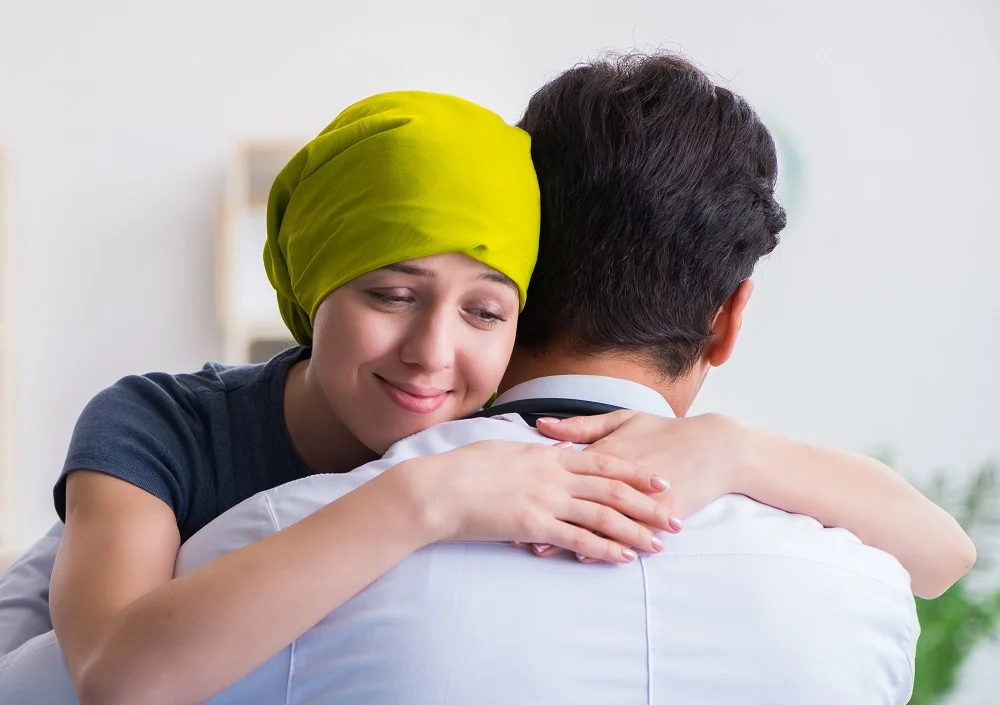Cancer Screenings
Early diagnosis and cancer treatment is critical to improving outcomes. We're proud to offer a variety of screenings & risk assessment programs to our patients.
2019-2021 Cancer Screening Results NYS Cancer Genetic Counselors
Cancer Screenings & Risk Assessment Programs
Early diagnosis and cancer treatment is critical to improving outcomes. Getting routine medical screenings so that cancer can be detected early enough to be treated or cured is important and making changes in your daily lifestyle that can help protect you from developing cancer.
At Garnet Health, we offers several cancer screenings throughout the year. Our programs include:
- Breast Cancer Screening - to help detect and prevent breast cancer before signs or symptoms are present. The screening includes a mammogram, clinical breast exam, breast screening and breast health education. Eligibility criteria applies.
- Breast Cancer Risk Assessment Program - to evaluate and develop individualized risk assessment and reduction plans.
- Oral, Head & Neck Cancer Screening - to detect and prevent Head & Neck cancer, which arises in areas including the nasal cavity, sinuses, lips, mouth, thyroid glands, salivary glands, throat, etc. Eligibility criteria applies.
- Skin Cancer Screening - This screening helps detect and prevent skin cancer. A skin cancer screening is a visual inspection of your skin by a medical professional. Eligibility criteria applies.
- Lung Cancer Screenings - We offer a lung screening program to evaluate for early signs of lung cancer - using Low Dose Computed Tomography, a non-invasive procedure. Eligibility criteria applies.
- Lung Cancer Risk Assessment Program - to evaluate and develop individualized risk assessment and reduction plans.
- Prostate Cancer Screening - This screening helps detect prostate cancer. A doctor or nurse inserts a gloved, lubricated finger into the rectum to estimate the size of the prostate and feel for lumps or other abnormalities. Eligibility criteria applies.
We are also committed to supporting our community by offering cancer awareness and educational forums. We have continued to expand our support groups and offer breast cancer support group, head and neck cancer support group and lung cancer support group. These support groups offer emotional support, practical advice and an opportunity to meet with others facing the same challenges.
Wellness & Prevention Education
How can we prevent cancer? Doctors have identified a number of risk factors that can increase a person’s chance of developing cancer as well as protective factors that decrease a person’s chance of developing cancer.
Cancer Risk Factors
A risk factor can be any activity, lifestyle behavior, food, genetic predisposition, or environmental exposure that increases a person’s chance of developing a disease. Activity, lifestyle, food, genetic predisposition, or environmental exposure that decreases a person’s chance of developing a disease is called a protective factor.
According to the American Cancer Society your risk for cancer depends on a number of factors, including your:
- Family medical history
- Environment
- Lifestyle behaviors
There are lifestyle choices you can make to reduce your risk of developing certain types of cancer and strengthen your health. Such life choices may include:
- Do not use tobacco products. Using tobacco products increases your risk for all types of cancer.
- Protect yourself from the UV rays of the sun. Stay in the shade, wear a hat, protective clothing, sunglasses, and sunscreen.
- Eliminate or limit your consumption of alcohol. A woman should drink no more than one drink a day. A man should drink no more than two drinks a day. A drink equals 12 oz. of beer, 5 oz. of wine, or 1.5 oz of liquor.
- Get moving. Get 30 minutes or more of moderate to vigorous physically activity 5 or more days of the week.
- Eat healthy. Focus on plant foods. Choose to eat foods high in fiber including a variety of fruits and vegetables. In addition, choose whole grains in bread, cereal, rice, and pasta.
- Limit the amount of red meat you eat. Avoid processed meat.
- Reach or maintain a healthy body weight.
Avoiding risk factors – and incorporating the protective factors into one’s life are the best ways to reduce your chances of getting cancer.
Genetic Predisposition to Cancer
While a person can give up smoking, it is not possible to change his or her family history and/or genetic predisposition. However, having one or more risk factors for cancer does not necessarily guarantee one will develop cancer. If you are concerned about your genetic predisposition to cancer, we encourage you to talk with your doctor. You may also consider reaching out to a cancer genetic counselor.
View New York State Cancer Genetic Counselors

Cancer Care
Advanced technology and compassionate staff to personalize your cancer care treatment.
Learn more
Cancer Survivorship & Support
If you or a loved one has cancer, count on our experienced physicians, compassionate staff and live-saving technologies to fight the battle, together with you.
Learn more